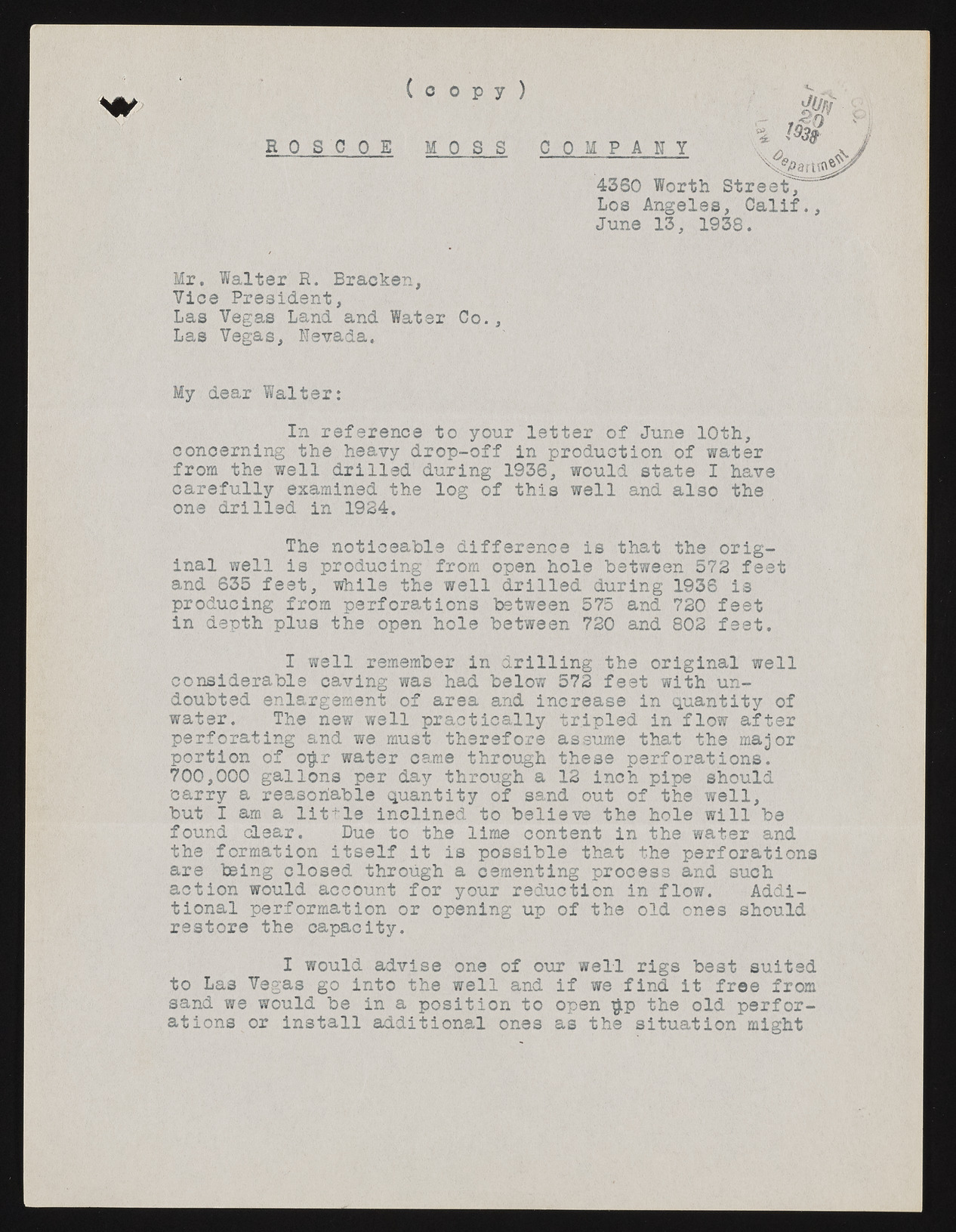Copyright & Fair-use Agreement
UNLV Special Collections provides copies of materials to facilitate private study, scholarship, or research. Material not in the public domain may be used according to fair use of copyrighted materials as defined by copyright law. Please cite us.
Please note that UNLV may not own the copyright to these materials and cannot provide permission to publish or distribute materials when UNLV is not the copyright holder. The user is solely responsible for determining the copyright status of materials and obtaining permission to use material from the copyright holder and for determining whether any permissions relating to any other rights are necessary for the intended use, and for obtaining all required permissions beyond that allowed by fair use.
Read more about our reproduction and use policy.
I agree.Information
Digital ID
Permalink
Details
Member of
More Info
Rights
Digital Provenance
Publisher
Transcription
( c o p y ) w S O S C O E M O S S C O M P A N Y 4360 Worth Street^ Los Angeles, Calif., June 13, 1938. Mr. Walter R. Bracken, Vice President, Las Vegas Land and Water Co., Las Vegas, Nevada. My dear Walter: In reference to your letter of June 10th, concerning the heavy drop-off in production of water from the well drilled during 1936, would state I have carefully examined the log of this well and also the one drilled in 1934. The noticeable difference is that the original well is producing from open hole between 572 feet and 635 feet, while the well drilled during 1936 is producing from perforations between 575 and 730 feet in depth plus the open hole between 730 and 802 feet. I well remember in drilling the original well considerable caving was had below 572 feet with undoubted enlargement of area and increase in quantity of water. The new well practically tripled in flow after perforating and we must therefore assume that the major portion of o#r water came through these perforations. 700,000 gallons per day through a 12 inch pipe should carry a reasoriable quantity of sand out of the well, but I am a little inclined to believe the hole will be found dear. Due to the lime content in the water and the formation itself it is possible that the perforations are being closed through a cementing process and such action would account for your reduction in flow. Additional performation or opening up of the old ones should restore the capacity. I would advise one of our well rigs best suited to Las Vegas go into the well and if we find it free from sand we would be in a position to open $p the old perforations or install additional ones as the situation might

